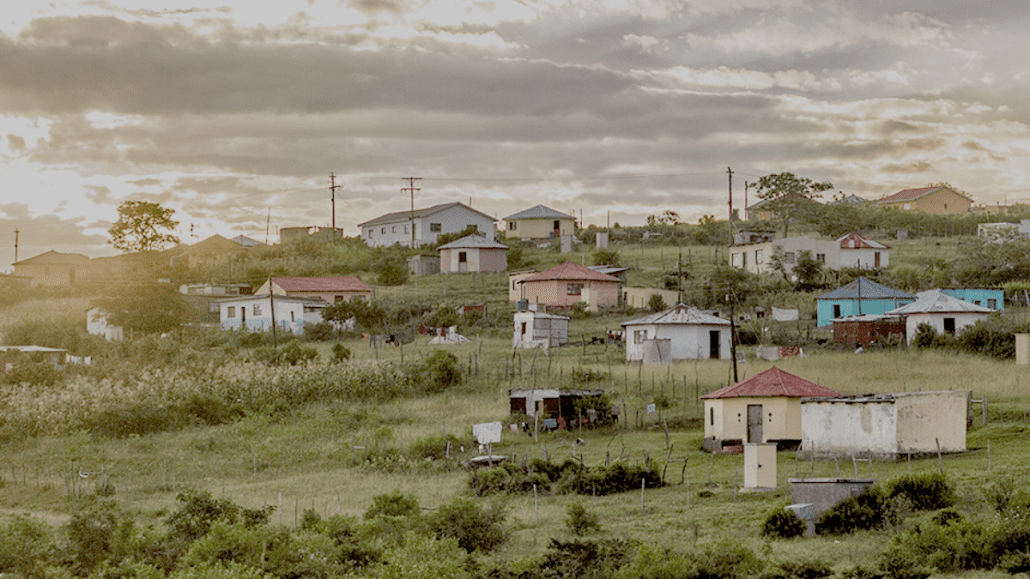Image: CoGTA
By Kwazi Dlamini
In the 10 years of its existence, Corruption Watch has worked on scores of corruption reports coming from the Eastern Cape (EC). Mismanagement and corruption are virtually the order of the day, and there seems to be no end to the shenanigans.
Therefore, it did not come as a surprise to see officials of Enoch Mgijima local municipality parading their recently unveiled – and now controversial – R15-million stadium, which looks more like it cost R15 000. To them, this was worth celebrating because that pat on the back helped them to sweep aside the horrible conditions they have let people live under, and go on pillaging the province with impunity.
The Hawks are now investigating the matter, however, and prosecutions have not been ruled out.
It also did not come as a surprise to see the recent gut-wrenching scene of two men from a village in Mount Ayliff, near the KwaZulu-Natal border, struggling to carry a coffin for burial across a wobbly rope bridge over the Umzimvubu river after heavy rain flooded the shoddy underlying concrete bridge in January. Villagers who risk their lives to cross the river accuse authorities of not building the concrete bridge high enough, but because of inaction have had to make do with the rope bridge for over two decades. People have died trying to cross the river, yet there is no assistance for them.
A book would not be enough to detail every incident of poor service delivery in the province, let alone an article – but the facts are there, as EC remains the poorest province in the country.
Lack of good governance plays a big part in the dilapidation of the province.
There is also a great reluctance to account for irregularities in matters pertaining to the province; this has been proven several times by the reports of corruption coming from the Eastern Cape that CW investigates. It is close to impossible to get officials to co-operate. While this phenomenon is common with government entities all around the country, EC ought to do better, considering the state of the province.
Consequences for only the whistle-blower
One example we have tried to resolve is a case in Emalahleni local municipality in the north-east of the province, under Chris Hani District Municipality. There, some officials are implicated in costing the municipality millions of rands in irregular and non-existent contracts but years later, are yet to account. The former Emalahleni municipal manager was implicated by a whistle-blower in irregular expenditure close to R60-million for the 2014/2015 financial year.
Trying to derail the train of unaccountability is usually, and predictably, met with serious consequences, sometimes death or loss of employment. Our whistle-blower, a former ward councillor, is currently living in fear after exposing alleged mismanagement of funds and corruption at the local municipality. The whistle-blower told CW that he also lost his job for blowing the whistle and making public a report implicating senior municipal officials.
Unfortunately, the familiar pattern continued with this case too, for both the whistle-blower Luvuyo Mooi and CW. Before approaching CW, Mooi exhausted several avenues available to him, seeking accountability for the irregular contracts at the municipality. He approached the provincial Cooperative Governance and Traditional Affairs (CoGTA) department, as well as the provincial wing of the Hawks.
CW followed up with both institutions. The Hawks claimed that they are aware of the matter but their hands are tied as the matter was still with the provincial treasury. Reaching out to provincial CoGTA did not get a response.
Meanwhile, the municipality appointed an ad-hoc committee to conduct an investigation on the allegations and the findings directly implicated then municipal manager Dr Sithembele Vatala and other municipal officials. To date, the recommendations of the ad-hoc committee report have not been effected. Instead, Vatala moved to occupy a similar position in Knysna local municipality, where he was later placed on precautionary leave and then resigned.
The nature of non-response to queries related to corruption and implication of public officials in the EC leaves the question of whether the poverty-stricken province is willing to dig itself out of this colossal hole.
Poor financial management means that citizens are denied critical services that can help sustain and improve their lives, but for now, that is merely business as usual in the Eastern Cape.

